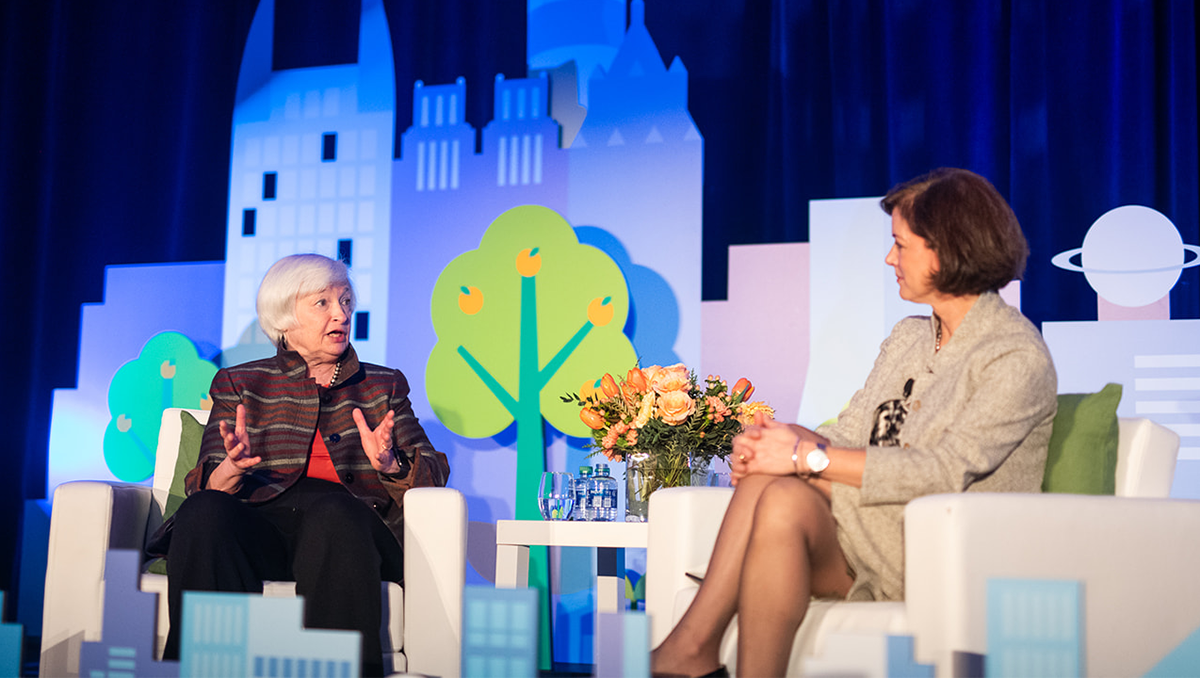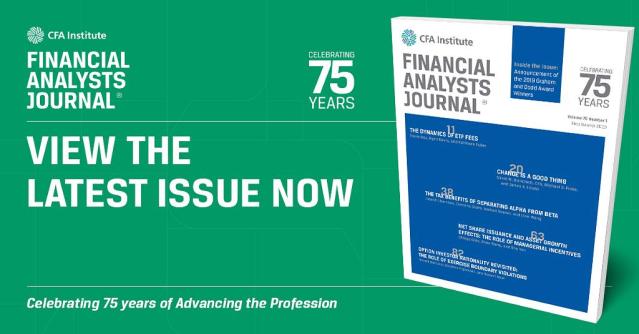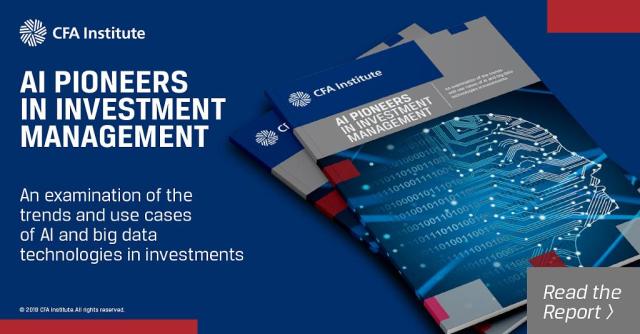[ad_1]
Editor’s note: This discussion was held 5 February 2020, in the weeks before the worldwide significance of the COVID-19 pandemic and the associated economic disruption were widely known.
What are the biggest risks to the US economy?
Should we be worried about inflation?
Does the US Federal Reserve have the tools to fight a recession?
What role can finance play in combating global climate change?
Janet Yellen addressed these and other key questions facing investors in a wide-ranging fireside chat with another pioneering woman in finance, Margaret “Marg” Franklin, CFA, the first female president and CEO of CFA Institute.
As former Fed chair and a top Fed official before, during, and after the Great Recession, Yellen developed a reputation for accuracy in forecasting. Throughout the discussion, which took place at the CFA Society Atlanta 16th Annual Forecast Event on 5 February 2020, she demonstrated why that reputation is well-earned.
What follows are some of the highlights from the conversation.
Recession and Risks
When it comes to US economic prospects overall, Yellen is sanguine. The economy is “on pretty solid ground [and] doing just fine,” she said. US GDP growth may have slowed last year, but even at 2.3% in 2019, it is still “above trend.”
US employers added 225,000 jobs in January and the jobless rate was 3.6%. All of which suggests a labor market that continues to enjoy good health even as the current US economic expansion enters its 11th year.
Consumers have been essential to this expansion, according to Yellen, and they remain “in pretty good shape” given the overall employment picture, increased wage growth, improved savings rates, and a booming stock market.
“There is nothing about the consumer driving the economy that looks unsustainable,” she said, and she doesn’t see “a lot of yellow or red lights flashing in the financial sector.”
But that doesn’t mean there’s no reason for concern.
“There is a lot of hand-wringing about a possible recession,” Yellen said. “There are risks out there. There are some drags on the US economy. The global economy is not very strong.”
Weak growth internationally and a decline in investment spending are among the current headwinds. There was also what Yellen calls, “something of a manufacturing recession almost in the United States,” and she cautioned that US non-financial corporate debt is concentrated across riskier, lower-rated firms.
So Where’s the Bubble?
Financial imbalances that create boom-and-bust cycles are often catalysts for recession. The stock market is soaring, equity and other asset prices are elevated, and yield spreads on riskier corporate debt are reasonably compressed.
So Franklin asked, Could there be a reversal?
“I’m not going to rule out that possibility,” Yellen said. “We are in a low interest rate environment . . . and interest rates have been trending down since before the financial crisis.”
But in a low interest rate environment, price-to-earnings ratios tend to be high, she said, and the equity risk premium is in “pretty normal territory.” So while asset values may be on the high side, they don’t “seem out of line given where interest rates are now.”
As far as any threats to financial stability coming from the banking sector, Yellen noted that financial institutions are much better capitalized and less reliant on leverage and short-term debt now than they were in the lead up to the financial crisis. So she doesn’t see “a lot of yellow or red lights flashing in the financial sector.”
Fed Folly?
But what about monetary policy? Could that possibly play a role in the next downturn? After all, in the post-war era, many US recessions have the Fed’s “fingerprints” on them, Yellen said. When inflation rose above the Fed’s price stability target, the central bank “took away the punch bowl” and tended to overtighten into a recession.
Should we be worried about that happening again today? Franklin wondered. Yellen was unequivocal: “Absolutely not.” Over the last decade, inflation has averaged 1.5% while the Fed’s target is 2%, she said. So the central bank has shown considerable restraint.
But that doesn’t mean inflation isn’t a concern. For the first time in her life, she said, the Fed “is really worried” that inflation is too low, that a slide into “Japanification” both in the United States and across the developed world isn’t beyond the realm of possibility.
So the Fed is “actively focused” on getting inflation back to 2% and “on keeping this expansion going,” she said.
Or Fed to the Rescue?
While the next recession does not appear imminent or its triggers obvious, we are still overdue for one.
And when that inevitable recession arrives, will the Fed have the tools to revive the economy?
When Franklin asked about this, Yellen quipped that when she first started in central banking, stories about the Fed were on page 19 of The Wall Street Journal. But after the financial crisis, suddenly all eyes are on the central banks.
It’s not healthy that central banks are the only game in town, she said:
“You cannot count on central banks having the toolkit they need to always rescue the economy when the downturn hits.”
As for modern monetary theory (MMT), Yellen said, “I’m not on board with that at all.”
But, she added, in a lower interest rate environment, having a much higher Federal debt-to-GDP ratio is sustainable.
The role of fiscal policy in a downturn remains a puzzle. The political environment has not been conducive to bipartisan agreement, Yellen said, but one mechanism that may be useful is automatic stabilizers that increase spending or cut taxes when the economy slows.
On Climate Change and a Carbon Tax
Climate change is “an urgent problem,” according to Yellen, and she believes the United States needs to adopt “a sensible strategy” for combating greenhouse gas emissions.
“It is hard to envision a successful worldwide effort with the US not cooperating,” said Yellen, who testified to Congress in support of the Kyoto Protocol when she chaired US president Bill Clinton’s Council of Economic Advisers and is currently a member of the Climate Leadership Council.
She believes instituting a tax on carbon emissions is a logical approach, and supports the Climate Leadership Council’s Baker-Shultz Carbon Dividends Solution.
“We need to price emissions and there needs to be a price that penalizes emissions of greenhouse gases,” she said. “We favor a carbon tax that would start off at around $40 a ton.”
Yellen expects climate change concerns to foster more innovation and improve productivity, but she “was less clear” that the related efforts will be a “productivity game changer.”
Productivity’s Downside: Increased Inequality
While excited about such innovations, Yellen worries about the implications of technology, particularly as it relates to productivity growth.
Advances in productivity tend to benefit skilled workers while their less-skilled counterparts often see their jobs replaced.
“I think inequality is one of the most serious issues affecting American society,” Yellen said. “The character of this technological change has been the driver of this inequality.”
She pointed out the median wage of American men has hardly budged since 1979.
“There are people who are doing very, very well but most of the gains have gone to the top 10% and the top 1% and the median has been absolutely flat,” she said. “It looks like the economy is doing well but there are a lot of people who aren’t doing well.”
And it might get worse.
Yellen referenced a McKinsey report on automation, artificial intelligence (AI), and the future of work that estimates about half of current jobs could be automated by new technologies.
What happens to the people who are displaced? Many are likely to end up in low productivity jobs. And that, Yellen said, is “a scary prospect.”
Lunch at Brookings
Franklin ended the conversation on a lighter note: What is lunch like at the Brookings Institution, where Yellen and Ben Bernanke, her predecessor and colleague at the Fed, are both fellows?
Yellen said they have dubbed themselves the FOMC, or former open market committee. And they watch the Fed press conferences together and talk about how they would have phrased things differently.
If you liked this post, don’t forget to subscribe to the Enterprising Investor.
All posts are the opinion of the author. As such, they should not be construed as investment advice, nor do the opinions expressed necessarily reflect the views of CFA Institute or the author’s employer.
Image courtesy of Mandi Mitchell Photography
[ad_2]
Image and article originally from blogs.cfainstitute.org. Read the original article here.



